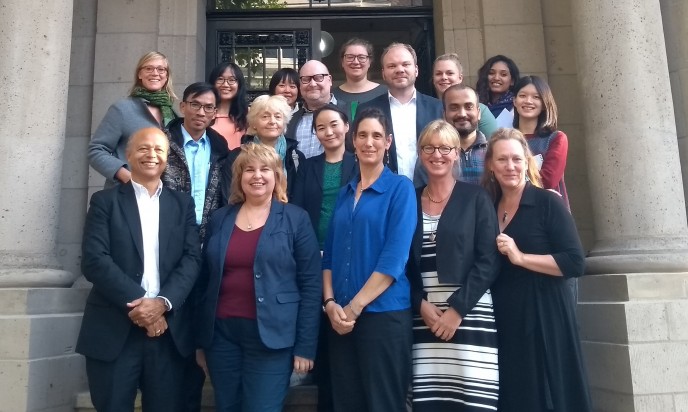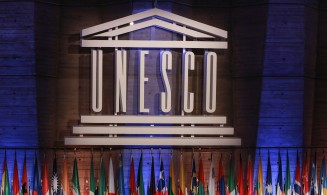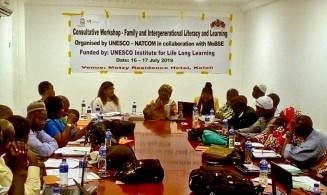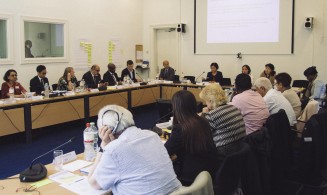

Shaping future thinking on literacy and lifelong learning
20190925litseminar_c_uil.jpg

The UNESCO Institute for Lifelong Learning (UIL) and the University of Hamburg hosted an international research seminar on literacy and lifelong learning on 12 September 2019. It provided a platform for discussing recent developments in literacy and lifelong learning from a research perspective, and included contributions from experts from Simon Fraser University in Canada and Rutgers University in the USA, as well as from UIL and the University of Hamburg. The seminar was opened by UIL Director David Atchoarena and chaired by Anke Grotlüschen, Professor of Adult Education at the University of Hamburg.
The first speaker, Suzanne Smythe from Simon Fraser University, discussed ‘Adult learning in the control society’, reporting on ethnographic data from a study of adult learners in a public adult learning centre. She found that automation of services amplified social inequality, creating a demand for new literacies and pedagogies to help adult learners become critical users and consumers of digital content and services.
Aliza Belzer, from Rutgers University, considered the portrayal of adult literacy learners in research studies, arguing that the dominant portrayals failed to capture the diversity of adult learners, their strengths, and their different learning needs. She warned that these portrayals could negatively influence the development of policies and programmes.
Finally, Huacong Liu, Research Associate at UIL, offered an empirical analysis of the importance of self-directedness for further learning and earning power, comparing data sets from the OECD’s Survey of Adult Skills (PIAAC) and the World Bank’s STEP survey. Her analysis of data from two high-income (Germany and the United States) and two middle-income countries (Yunnan province, China, and Viet Nam) demonstrated the greater likelihood of motivated adult learners pursuing further leaning, regardless of the level of opportunity in their respective countries.
The results of the seminar will inform UIL’s ongoing policy and capacity-building work on lifelong learning and literacy.
The seminar was organized within the framework of a joint project on everyday mathematics as part of adult basic education involving the University of Hamburg, the Hamburg University of Applied Sciences and the Helmut Schmidt University/University of the Federal Armed Forces and UIL.










